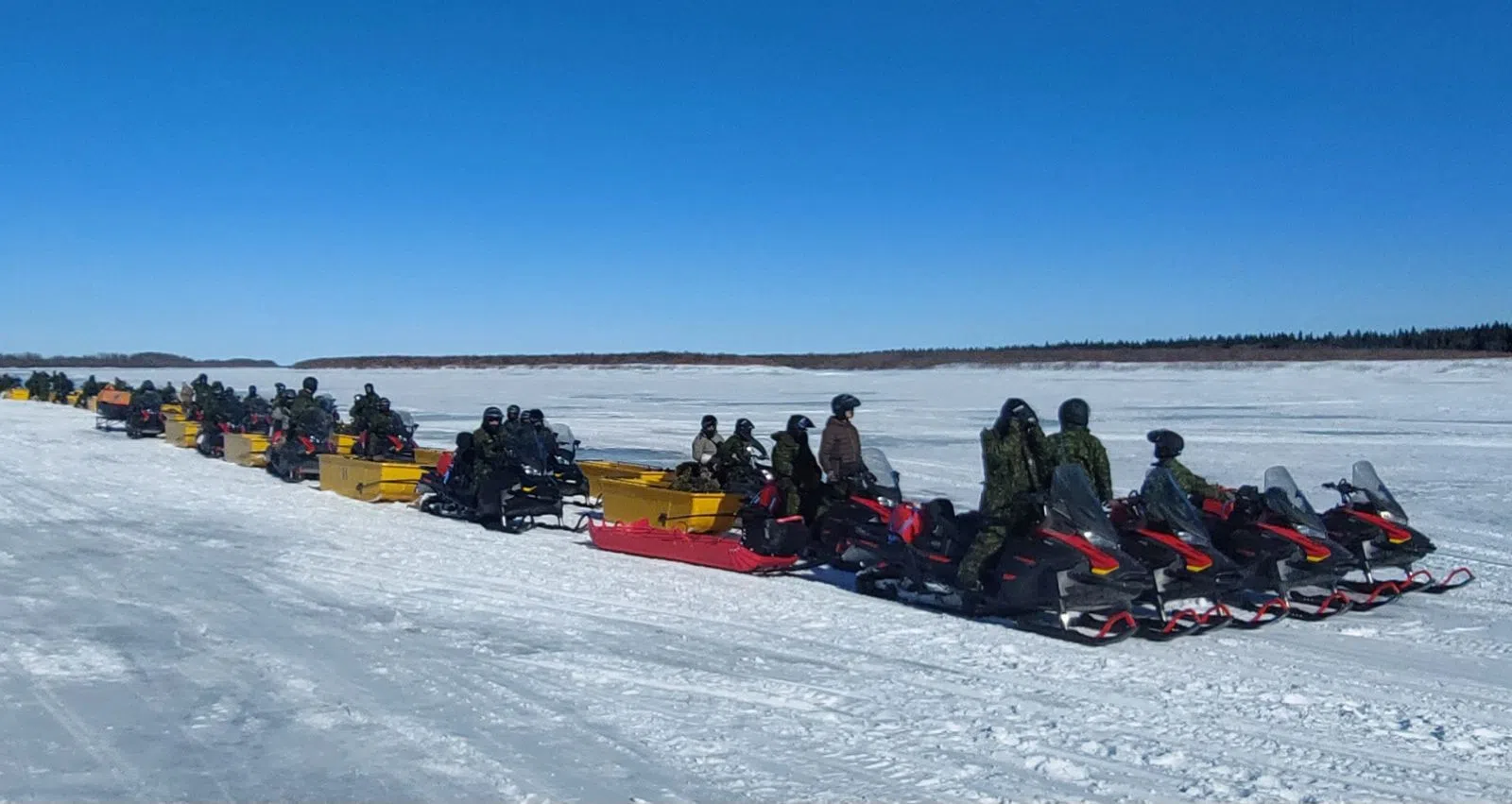The Owen Sound and Barrie based Grey and Simcoe Foresters have been working to hone their skills in Arctic and Subarctic conditions.
The Canadian Armed Forces local primary reserve infantry regiment is the 4th Canadian Division’s Arctic Response Company Group (ARCG) and is part of the larger 31st Canadian Brigade Group of about 2,500 members from Windsor to Barrie.
About 190 of them traveled to the Moosonee area from March 8th to the 17th to take part in exercise ‘Glacial Arrowhead’ alongside American and Latvian NATO allies. Those in the field were supported by numerous soldiers in administrative roles around Southwestern Ontario as well.
The exercise took them to Moose Factory First Nation, Fort Albany First Nation, Kashechewan First Nation, James Bay and Hannah Bay with the goal of gaining experience, practicing skills and working with allies. The soldiers are mandated to respond to Arctic and Subarctic regions on short notice (less than four days) to defend sovereignty, respond to disaster or support civilian authorities.
Sgt. Monique Dunford of the Grey and Simcoe Foresters led a section of soldiers in the exercise, some of whom had just obtained their cold weather operator qualifications followed by their snowmobile qualifications.
“For them it was a validation of their skills,” says Dunford who notes snowmobiling in unpacked, fallen snow is a challenge compared to the snowmobile trails many people are used to. “I think we did in total, 400kms by snowmobile in my platoon.”
Dunford’s platoon survived out of snowmobiles and toboggans, living in canvass tents. “We warm up with stoves and when we’re cold we go in the tent and carry on the exercise like any other time,” says Dunford. Some members taking part in the exercise were also equipped with predator protection rifles for self-defence because they were in polar bear territory.
Dunford notes 3rd Canadian Ranger Patrol Group members local to the area were indispensable in their work, noting, “They’re the experts on the local land who tell us where not to go and keep us safe.”
Dunford says they did cold water immersion training which involved cutting a big section of ice out of a frozen lake area and getting in the frigid water to ensure they know how to function in the event of a cold water accident.
She explains it’s important for soldiers to be able to operate anywhere in the country, noting there’s a large arctic sovereignty exercise planned for next year as well.
Dunford, who is a wildfire helicopter pilot as her day job says they were sustained by helicopters during the exercise which also provided an opportunity for them to learn how to use a sling load, which is a cargo net that hooks up to the helicopter to bring supplies and food in and out.
They also held an open house in Moosonee for the community to visit, ask questions and learn about the Forces. They met with local First Nations, learned ice fishing and survival skills.
View this post on Instagram



